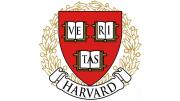Harvard Forward, which organized alumni to place petition candidates on the annual ballot for the Board of Overseers—and elected four younger Overseers, on a platform advocating divestment from fossil fuels, governance reform, and other changes, in 2020 2021—has announced that it will not contest the 2022 voting. In a notice just released to supporters, Danielle Strasburger ’18 and Nathan Goldberg ’18, Harvard Forward’s co-founders and organizers, wrote:
Harvard Forward will not be fielding petition candidates for the 2022 Harvard Board of Overseers election.
While this decision may come as a disappointment to many of our supporters, we believe it is in the best interests of our movement for multiple reasons.
From a human perspective, neither of us (Nathán or Danielle) are able to devote the time the campaign deserves and needs to be successful this year. Since we founded Harvard Forward, we have committed thousands of hours to the cause on a purely volunteer basis, and while we wish we could continue to do so indefinitely, that is no longer sustainable given our other personal and professional commitments. We believe a poorly-run campaign would be more detrimental than taking a year off, especially considering we only have two more chances of placing candidates on the board after Harvard changed the election rules to limit petition candidacies.
They also suggested the possibility of future campaigns:
This break will also give us time to connect with our organizational allies to assess our achievements so far and continue to evaluate the university's progress on our campaign priorities. Then we can adjust our approach as needed and rebuild for a 2023 campaign, with more time to find the best possible candidates and organizers to move our efforts forward.
Under changes adopted by the governing boards in the fall of 2020, the number of petition candidates who can be elected and serve simultaneously on the Board of Overseers is now limited to six (of 30). Although that change, prompted by Harvard Forward’s initial campaign and electoral success based on an issues-oriented agenda, was not at all the sort Harvard Forward sought to prompt, Strasburger and Goldberg wrote:
Harvard is a very old, bureaucratic institution, where even strategic priorities are measured not in years but in decades. But with your help and the support of thousands of alumni, we've managed to bring about a lot of change.
We successfully elected the first petition candidates to Harvard's board since Archbishop Desmond Tutu won a seat 30 years ago representing Harvard & Radcliffe Alumni/ae Against Apartheid. For the first time ever, the youngest generation of Harvard alumni have a seat at the table – or four seats, to be exact. And this past fall, Harvard announced its commitment to divest from fossil fuels, increase support for climate research & education, and accelerate its efforts to make campus operations fossil-free, steps that were all part of Harvard Forward's platform. We are proud to have been part of the broader divestment movement that brought about these victories. [For an different interpretation, see “Has Harvard ‘Divested’?”]
But while there are many successes we can point to, we know there is still a lot of work to align the university's actions with the values of our students and alumni. Harvard has not yet made a plan to divest from the prison-industrial complex, and progress on the creation of an Ethnic Studies department has been painfully slow. The inclusion of younger voices in governance has yet to be institutionalized, and, even without fossil fuels in our endowment portfolio, new research by Fossil Fuel Divest Harvard shows how fossil fuel interests continue to have tremendous influence on campus.
So this is not the end of Harvard Forward as much as a pause. We'll be back soon to continue doing our part in holding Harvard to its highest ideals.
This means that absent other petition efforts, the 2022 slate of nominees for the Board of Overseers will be crafted via the Harvard Alumni Association’s traditional nominating-committee process; it is likely to be unveiled early in the new year.









